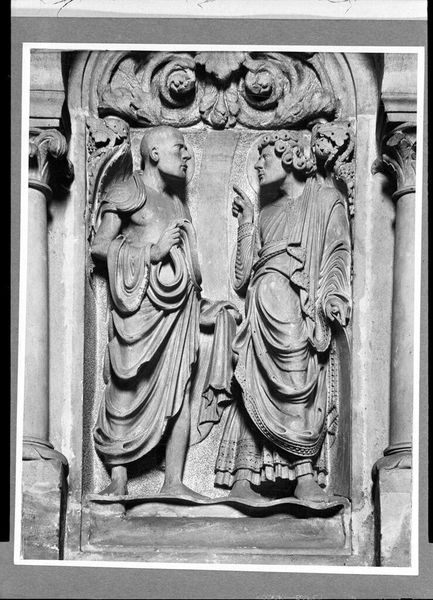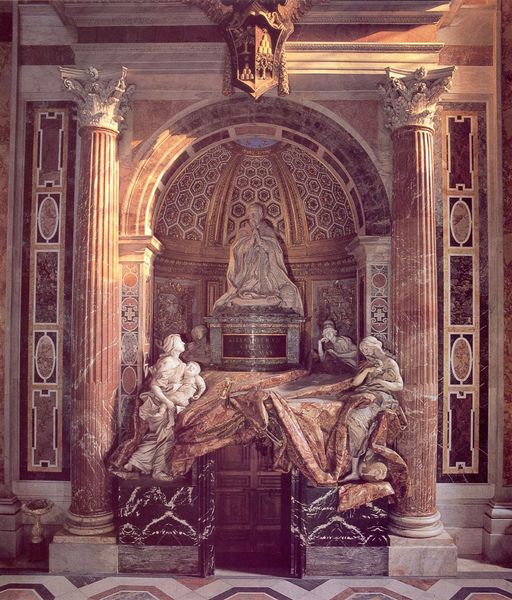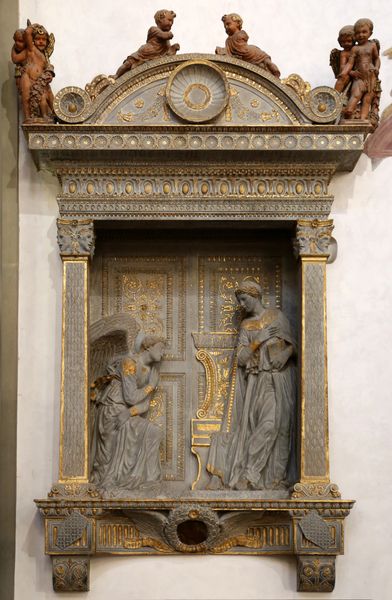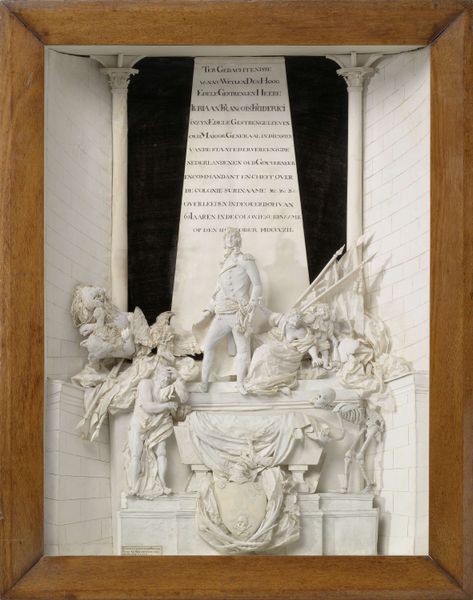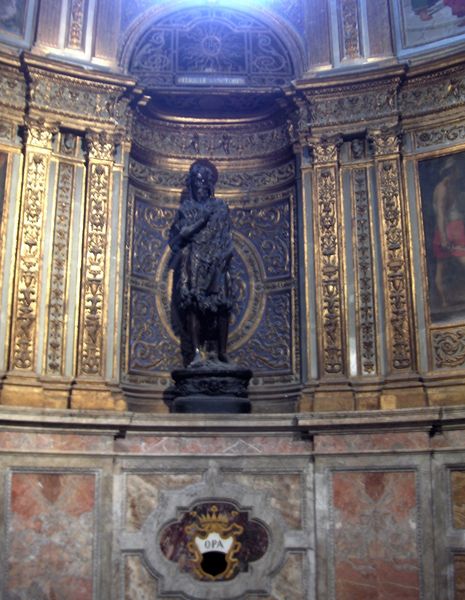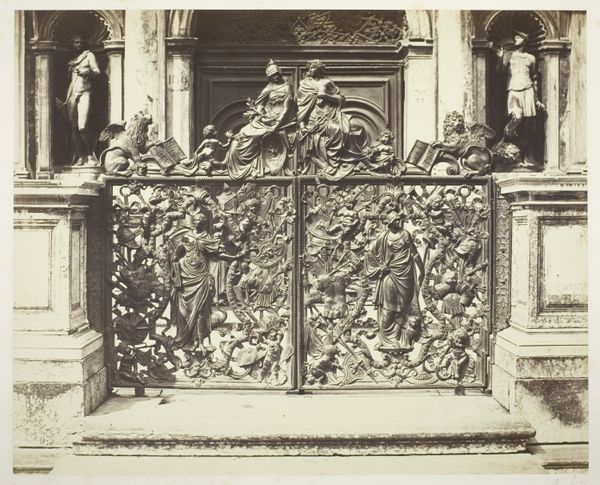
carving, sculpture, marble
#
portrait
#
carving
#
baroque
#
sculpture
#
figuration
#
romanesque
#
classicism
#
sculpture
#
architecture
#
history-painting
#
marble
Copyright: Public domain
Gian Lorenzo Bernini completed this sepulcher in the 17th century, using marble to commemorate Matilda of Tuscany. Bernini was not just an artist but a master of marble, coaxing this unforgiving material to seem almost fluid. Notice the texture of Matilda's dress, how the folds appear to move, and the soft, plump forms of the cherubs. It is hard to believe that this was achieved by the forceful removal of stone. Bernini had assistants who did the roughening work, but the final carving was his alone. Marble itself has a history, quarried in specific locations, like Carrara, and traded as a luxury commodity. The whiteness associated with marble is, of course, a fiction; its veining is part of the material’s geologic story. This sepulcher stands as a testament to artistic skill, but also a reminder of the material’s own inherent qualities and history. By understanding the complex relationship between material, making, and context, we can appreciate the full depth of Bernini's creation.
Comments
No comments
Be the first to comment and join the conversation on the ultimate creative platform.



